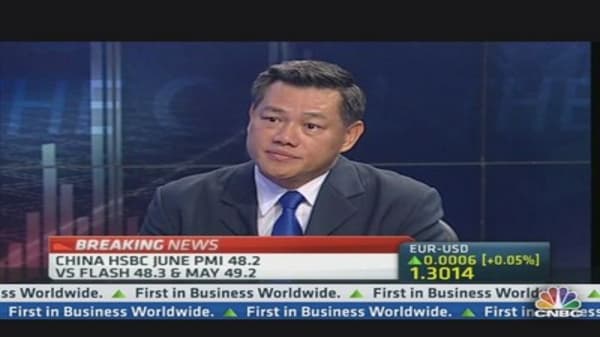Asian markets got off to a rocky start on the first trading day of the third quarter on growing concerns over China's economic slowdown, and Goldman Sachs expects a lackluster performance for the region in the coming months given tighter liquidity conditions and weaker growth.
The U.S. investment bank on Sunday lowered its 12-month target on the MSCI Asia ex-Japan Index to 480 from 550, or about 11 percent upside from current levels.
"The macro environment has turned less favorable for regional equities. Markets are pricing QE tapering, leading to tighter financial conditions. Growth estimates have declined, notably in China, as policy makers there turn more constrictive," strategists at the bank wrote in an Asia-Pacific Quarterly Outlook.
Goldman forecasts 6.1 percent gross domestic product (GDP) growth in the region, down from an initial estimate of 6.9 percent at the start of the year. The bank says could bring corporate earnings under pressure, forecasting just 9 percent earnings per share (EPS) growth this year as opposed to previous expectations for 12 percent.
(Read More: Goldman Sees No Rebound for Chinese Stocks)
"In the very near term, 1-3 months, we expect Asian equities to be under pressure as investors weigh the negative impact of higher rates with a potential, but not yet apparent, recovery in the growth outlook," they added.
Asian equities have taken a sizable hit in the recent months as worries over a scaling back of the U.S. Federal Reserve's bond buying program triggered a sharp withdrawal of funds from the region. MSCI Asia ex-Japan Index plunged over 10 percent since May.
(Read More: Show of Force: More Fed Speakers Aim to Calm Markets)
"We anticipate a recovery bounce and then range trading," the bank said. It expects the index to rise to 440 and 450 over the next 3 and 6 months, respectively, representing gains of 2.3 percent per quarter.





